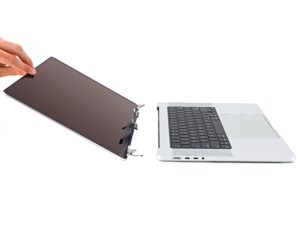Smartest chip on laptop motherboards – A laptop motherboard is the central nervous system of the computer, responsible for interconnecting and controlling all its components.
Understanding the different chips and components on a laptop motherboard helps you appreciate the complex technology that powers your device. In this article, we’ll dive into the world of laptop motherboards and discover the smartest chip among them.
Components of a Laptop Motherboard
A typical laptop motherboard consists of several essential components that work together to ensure smooth operation. These components include:
CPU
The Central Processing Unit (CPU) is the brain of the computer, performing all calculations and processing required for the system to function. It’s often considered the most critical component on a laptop motherboard.
GPU
The Graphics Processing Unit (GPU) is responsible for rendering images, animations, and videos. It plays a significant role in gaming, video editing, and other graphically intensive tasks.
RAM
Random Access Memory (RAM) is the temporary storage used by the computer to hold data while it’s being processed. It plays a crucial role in a laptop’s speed and multitasking capabilities.
Chipsets
Chipsets are responsible for controlling the communication between the CPU and other components on the motherboard. They play a vital role in the overall performance of the system.

Smartest Chip on Laptop Motherboards: Central Processing Unit (CPU)
The CPU is undoubtedly the smartest chip on a laptop motherboard. It’s responsible for executing all instructions and processes within the system. Let’s take a closer look at CPU architecture and the main manufacturers in the market.
CPU Architecture
There are two main CPU architectures used in laptops today:
x86
The x86 architecture is the most common and widely used architecture in laptops. It is named after a series of Intel microprocessors and is used by both Intel and AMD processors. The x86 architecture is known for its compatibility with a wide range of software and hardware.
ARM
The ARM architecture is used primarily in smartphones, tablets, and some laptops, particularly those with a focus on energy efficiency and extended battery life. Apple’s M1 chip, used in their latest MacBook lineup, is based on the ARM architecture.
CPU Manufacturers
There are three main players in the CPU market for laptops:
Intel

Intel is a dominant force in the laptop CPU market and has been for many years. Their processors, such as the Core i3, i5, and i7, are found in a wide range of laptops across various price points.
AMD

AMD is a strong competitor to Intel, offering a diverse range of processors, including the Ryzen series. These processors are known for their excellent performance, particularly in multitasking and gaming.
Apple

Apple recently introduced its own custom ARM-based chip, the M1, for its MacBook lineup. The M1 chip has received widespread praise for its performance and energy efficiency.
Conclusion
In conclusion, the smartest chip on a laptop motherboard is the CPU. As the brain of the computer, it handles all processing tasks, making it the most critical component for overall system performance. With different CPU architectures and manufacturers, consumers have various options to choose from based on their specific needs and preferences.
You may want to check out the link below to learn more about motherboards.
FAQ
What is the role of the CPU on a laptop motherboard?
The CPU, or Central Processing Unit, is responsible for executing all instructions and processes within a laptop. It is often considered the brain of the computer, as it handles all calculations and processing tasks.
How does CPU architecture affect laptop performance?
CPU architecture can influence a laptop’s performance in various ways, including processing speed, power consumption, and compatibility with software and hardware. For example, x86 architecture is known for its wide compatibility, while ARM architecture focuses on energy efficiency.
What are the main CPU manufacturers for laptops?
The three main CPU manufacturers for laptops are Intel, AMD, and Apple. Intel and AMD produce x86-based processors, while Apple creates ARM-based chips, like the M1, for its MacBook lineup.
Can I upgrade my laptop’s CPU?
Upgrading a laptop’s CPU is generally more challenging than upgrading other components like RAM or storage. Most laptops have the CPU soldered to the motherboard, making it nearly impossible for average users to replace or upgrade. However, some high-end gaming or workstation laptops may have socketed CPUs, allowing for upgrades.
Which CPU should I choose for my laptop?
Choosing the right CPU for your laptop depends on your specific needs and budget. Intel and AMD offer a wide range of processors with varying performance levels, while Apple’s M1 chip is an excellent option for those looking for energy efficiency and macOS compatibility. Consider your intended use, such as gaming, video editing, or everyday tasks, to determine the best CPU for your needs.





